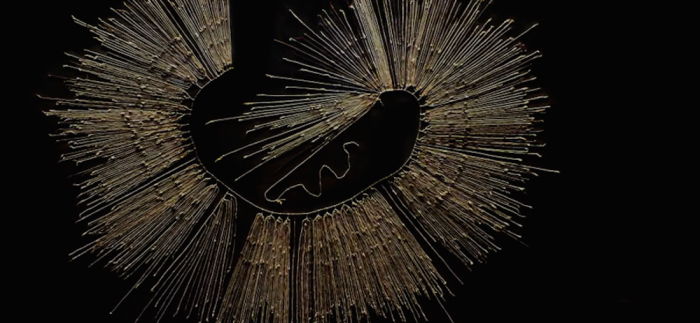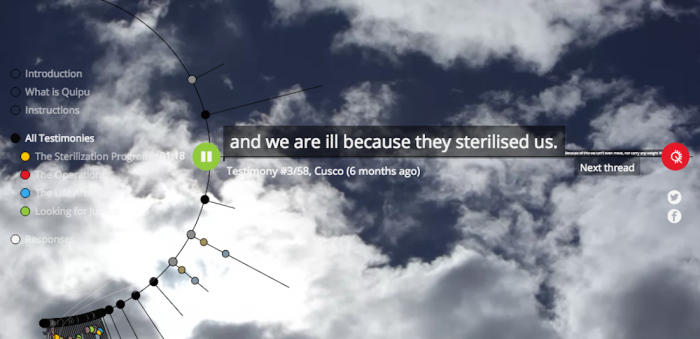In Peru during the 1990s, over 350 000 women and 25 000 men were forced to undergo sterilisations as part of a program instituted by former president Alberto Fujimori. He believed that curbing the Peruvian population was key to the alleviation of poverty in South America’s poorest region.
The victims were almost exclusively indigenous people living in the rural areas of Peru with no media representation and a language barrier that meant their cries for help would go unheard. Now, an interactive documentary platform called the Quipu project has established an online archive to document the testimony of thousands of women and men who suffered in silence for almost two decades.
Quipus are knotted cords that were used by the Incas and ancient Andean civilisations to convey complex messages. This project is a contemporary interpretation of this system. Using a specially established phone line connected to the website, Peruvians are able to call in and archive their experiences. People around the world are also able to log messages of support for those brave enough to speak up.
In one call, one woman claims that she and other women were sterilised when they didn’t know what sterilisation was, and as the nurses at the time explained, it needed to be done because “we had many children, like guinea pigs”.
Another woman testified that she was sterilised after she had given birth. The procedure was done without her or her husband’s consent. In further testimony, a number of women describe being herded in ambulances or buses to group sterilisations. These women also describe the physical and psychological pain they were left in after the procedures were carried out against their will.
The testimony is organised according to the theme they address: The sterilisation process, The Operations, The Life After, and Looking for Justice. “We expect that the number of voices will continue to grow and connect, building a community around this common issue,” reads the project website.
Ultimately, the project does more than provide a platform for the victims of forced sterilisation: “Our intention is that these stories are never forgotten, that these abuses will never be repeated. We are working in partnership with Amnesty International to support their Against Their Will campaign, and in collaboration with local women’s organizations who hope to use this archive in their fight for justice.”
Fujimori, in prison since 2007 for corruption and human rights abuses, was cleared of all charges related to the forced sterilisation of Peruvians and crimes against humanity in 2014. But, earlier this year, a leading prosecutor called for the investigation to be reopened to include the oral statements that were not accessible before the Quipu project.








